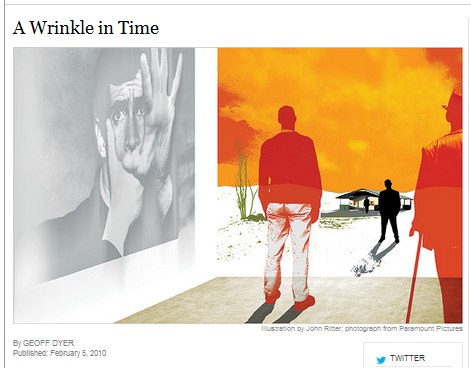|
Philip Rieff, The Crisis of the Officer Class,
University of Virginia Press, 2007
From page 73:
The third culture's life-style, its way, is no way: it is abandonment,
an ethos of empty seriousness best expressed, I think, by the
greatest of American poets in the tradition that began with
Emerson. Wallace Stevens was the greatest American maker of
that "fictive music" of the "unreal" by which poets "give back to us
what you [God] gave," Creation itself, now understood, in the third
culture, as the "imagination that we spurned and crave." Stevens
understood the fictive music of faith, that intensity which
proclaims
The near, the clear …
. . . . . . . . . . . . . . . . .
… an image that is sure,
. . . . . . . . . . . . . . . . . . .
Yet not too like, yet not so like to be
Too near, too clear, saving a little to endow
Our feigning with the strange unlike…. [12]
This is masterly anti-theology. This is what no "mickey mockers" of
the spirit can ever become: the "American sublime," the mar-
[12] Wallace Stevens, "To the One of Fictive Music," in Collected
Poems (New York: Alfred A. Knopf, 1954), 87-88; all citations of
Stevens are to this edition.
From page 74:
velous panic and emptiness of belief by which the "sublime comes
down/To the spirit itself" and terrifies the American self:
The spirit and space,
The empty spirit
In vacant space.
What wine does one drink?
What bread does one eat? [13]
This poet is no great character, nor temple priest. He is a virtuoso
chef, preparing the food for the American feast of unbeliefs. This
supreme fictionist invents bread and wine, anything that will act as
that "act of the mind." [14] Stevens had a shrewd Emersonian idea
of myth, or Freudian, the "sexual myth" or any other "images of
metaphors." [15] He knew that it was in "this invented world" that "the
death of one god is the death of all." This is the most supreme of all
fictions, by which "He imposes orders as he thinks of them." [16]
[13] Stevens, "The American Sublime," 130-31
[14] Stevens, "Of Modern Poetry," 239-40; modern poetry, which is
"the finding of a satisfaction," or a script for a theater– whatever
"will suffice" for the "insatiable actor" of the third culture, even the
script of "cuisine bourgeoise," where we may "feast on human
heads" (240, 227).
[15] Stevens, "Men Made out of Words," 355; and "Thinking of a
Relation between the Images of Metaphors," 356-57.
[16] Stevens, "Notes toward a Supreme Fiction," 380-81, 403.
|
 .
.

